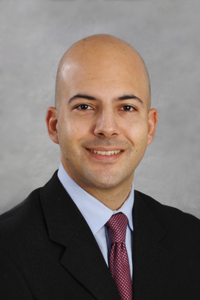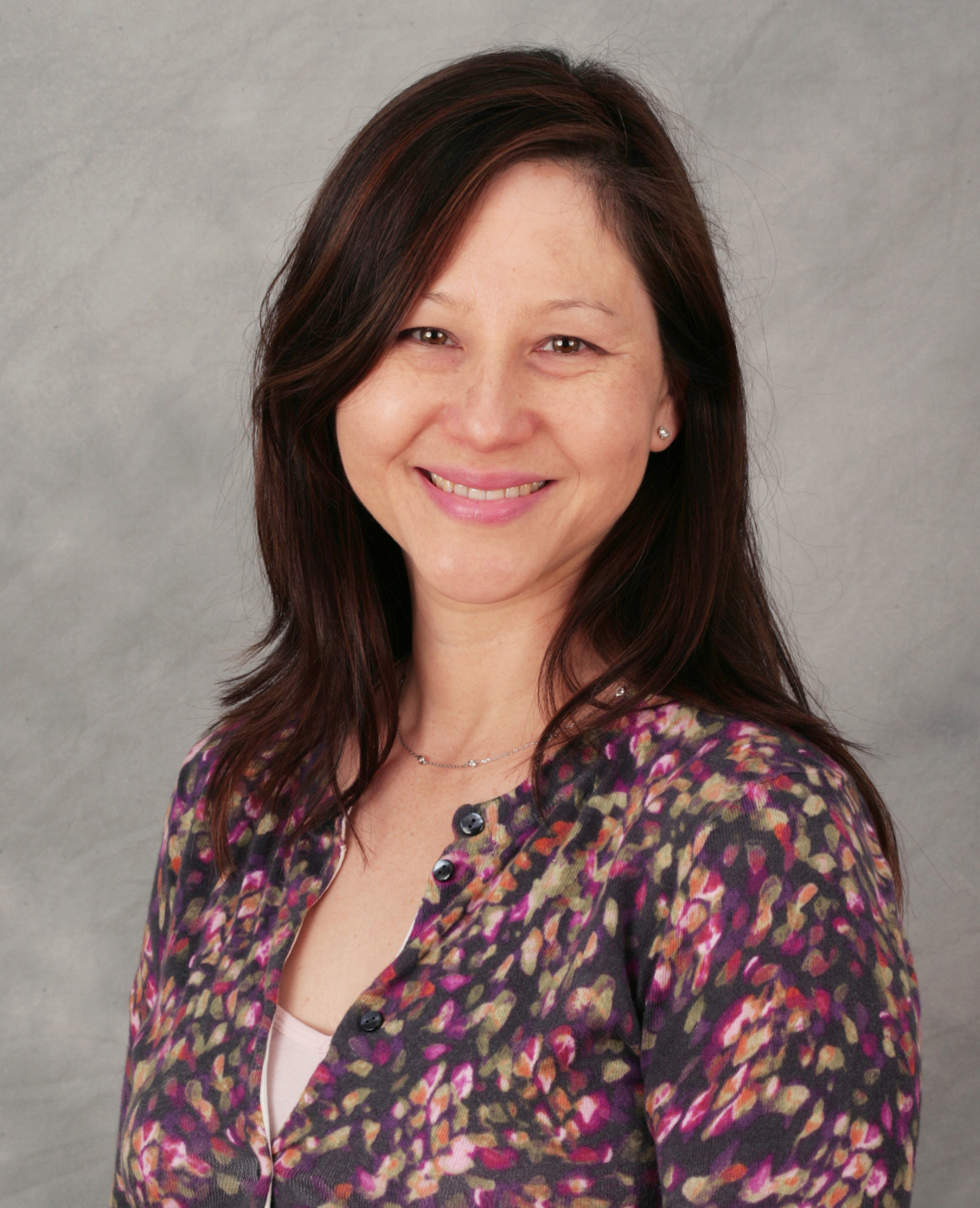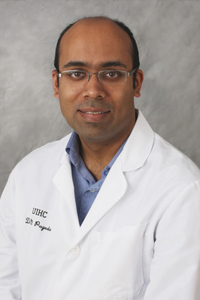
Rodrigo Bayon, MD
Associate Professor
Head & Neck Oncology
Rodrigo Bayon, MD earned his medical degree from the University of South Florida. He completed his residency in Otolaryngology-Head & Neck Surgery at Northwestern University andsubsequently completed a fellowship in Head & Neck Oncology & Reconstructive Surgery at the Mayo Clinic in Arizona. He is developing a trans-oral robotic surgical program (TORS). Dr. Bayon joined the faculty at the University of Iowa Hospitals and Clinics in July of 2011.
Head and Neck Oncologic Surgery and Reconstructive Surgery Fellowship
Join Our Team!
Become our Head & Neck Fellow for 2024-25!
About the Program
The Head and Neck Oncologic and Reconstructive Surgery Fellowship at the University of Iowa is a one year program that is accredited through the Advanced Training Council. Fellows will master the examination and diagnosis of benign and malignant lesions involving the head and neck, as well as learn the appropriate reconstruction and rehabilitation techniques used in the management of these patients.
Training is primarily clinically directed so that fellows are afforded the opportunity to participate in a variety of procedures, ranging from skull base resection to laryngeal rehabilitation.
Research opportunities are also available in the field of outcomes evaluation and quality of life assessment for head and neck cancer patients.
Check out our facilities
Program Director
Rodrigo Bayon, MDDepartment of Otolaryngology—Head and Neck Surgery
200 Hawkins Drive
Iowa City, IA, 52242
rodrigo-bayon@uiowa.edu
Number of Positions
One (one year) position. A new candidate is accepted each year.
Accreditation
University of Iowa Head and Neck Oncologic and Reconstructive Surgery Fellowship is accredited through the Advanced Training Council.
Objectives and Training
Clinical
On completion of their fellowship training at University of Iowa Hospitals & Clinics, the Head and Neck Fellow will have mastered the examination and diagnosis of benign and malignant lesions involving the head and neck. The program teaches the appropriate reconstruction and rehabilitation techniques used in the management of these patients.
To achieve these objectives the fellowship training is largely clinically directed, allowing fellows the opportunity to participate in a variety of procedures. These range from skull base resection to laryngeal rehabilitation. In addition, the fellow routinely performs between 35 to 45 free tissue transfers during one year of clinical training.
Understanding the importance of an interdisciplinary approach to the treatment of head and neck cancer is encouraged through the coordination of the Head and Neck Cancer Tumor Board, where proficiency in the management of these patients is discussed.
Research
During the fellowship, the fellow completes a clinical and/or basic science research project relating to the field of head and neck oncology. A variety of research opportunities are available in the field of outcomes evaluation and quality of life assessment for head and neck cancer patients. In addition the fellow has a variety of basic science laboratories available within which they may coordinate research projects.
The Fellowship Environment
UI Hospitals & Clinics serves as a major tertiary care center for the Midwest. Nearly 25 percent of the 35, 000 yearly outpatient visits to our department are cancer related. Approximately 500 patients are referred to the University of Iowa every year for management of head and neck cancer, and 300 of these are treated surgically. Patients stay in the Clinical Cancer Center, opened in 1994. The UI Hospitals & Clinics surgical ward, opened in 1991, consists of 24 operating suites.
Course Structure
The clinical work will be performed under the supervision of the fellowship director and the Head and Neck Oncologic faculty within the dept. The fellow is expected to coordinate the multidisciplinary Head and Neck Cancer Tumor Board. They are also required to attend regular departmental meetings, including Grand Rounds, Morbidity and Mortality Conferences Head and Neck Oncology Rounds, Head and Neck Plastics Conferences amongst others. The fellow is expected to actively participate in the education of residents and medical students in the operating room, on the wards, and in the clinic.
Interdisciplinary Approach
One of the greatest strengths of the fellowship training at the University of Iowa is the collaboration between the Otolaryngology service and other subspecialties. Cooperation and involvement with Cardiothoracic surgery, Neurosurgery, Oculoplastics surgery, Oral Maxillofacial Surgery, and General Surgery is routine.
Head and Neck Oncology Faculty & Fellow
Our people are the heart of our program. From the reception desk to the exam room, from administration office to faculty office you will find our people eager to help you become the best otolaryngologist you can be.
At Iowa, you will be exposed to some of the best clinicians, researchers and teachers in our profession. We provide high-powered opportunities for you to learn career-long lessons from these dedicated professionals.

Kristi Chang MD
Associate Professor
Head & Neck Oncology
Co-Director Residency Program
Kristi Chang, MD earned her medical degree from the University of Southern California. She remained there to complete her residency in Otolaryngology–Head and Neck Surgery at the Keck School of Medicine, USC. Dr. Chang then moved to the University of Iowa Hospitals and Clinics during the summer of 2002 to begin her fellowship in Head and Neck Oncology and Reconstructive Surgery, after which she was offered a faculty appointment.
Academic Profile
UIHC Profile

Nitin Pagedar MD, MPH
Associate Professor
Head & Neck Oncology
Nitin Pagedar, MD received his medical training from Case Western Reserve University in Cleveland, Ohio. He completed an internship and residency at Case Western and then completed a fellowship in Head & Neck Oncologic and Reconstructive Surgery at the University of Toronto from in 2007-2008. Dr. Pagedar’s research interests include: outcomes of head and neck reconstructive surgery, utility of PET/ CT scanning for staging of head and neck cancer, voice alteration after thyroidectomy, maxillary reconstruction and education in microvascular reconstructive surgery.
Current Head and Neck Oncology Fellow

Nigel K Denis, MD, CHSSM, CITP
Education
Medical School: University of Miami Miller School of Medicine
Graduate School: McGill University, Montreal, QC, Canada
Hometown
Seattle, WA
Why Iowa
Strong Head and Neck case volumes with multidisiplinary collaboration and the opportunity for exposure to facial plastic and reconstructive surgery faculty.
Hobbies
Gym and fitness, travel, foreign films, visual arts, cooking/culinary art, automobiles, interior design and real estate.
How to Apply
Eligibility
Fellowship candidates must be either board certified or board eligible in Otolaryngology Head and Neck Surgery, General Surgery, or General Plastic Surgery. The fellowship candidate must be able to obtain a license to practice medicine in the State of Iowa. Documented experience and ability in the management of head and neck cancer patients through letter of reference and the applicants’ personal statement are required.
Application
For fellowship match information and application, visit the American Head and Neck Society website at www.ahns.info
Or contact:
Rachel Richardson1-319-356-2169
rachel-richardson@uiowa.edu
Department of Otolaryngology
University of Iowa Hospitals & Clinics
200 Hawkins Drive
Iowa City, IA 52242